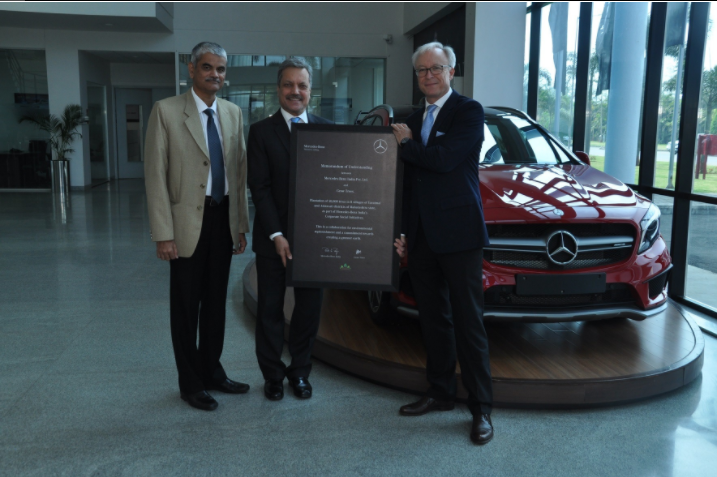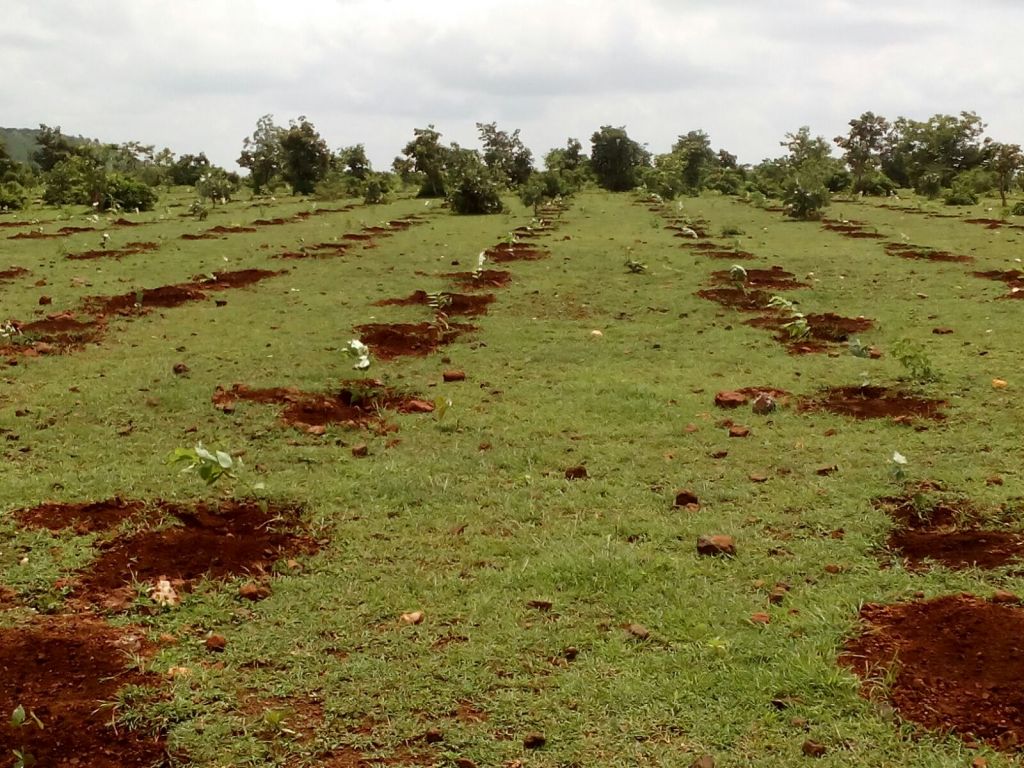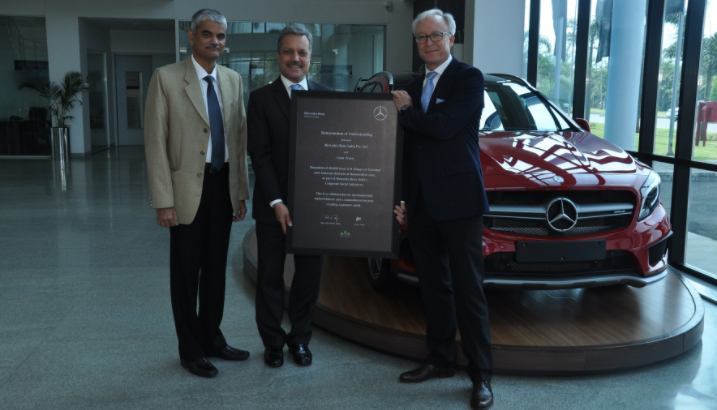When we think of luxury cars, none matches the design, function and innovation of a Mercedes-Benz. The assurance of quality that comes with a Mercedes-Benz model is what steers customers across the globe to become owners and admirer of their work and brand.
In a bid to lead and go beyond satisfying the customers’ automotive needs, Mercedes-Benz India has set its sights on improving the life of the consumer beyond the comforts of the car. For every one customer that purchases a Mercedes-Benz, the company will sponsor the plantation of 10 trees in the name of the customer and issue an eTreeCertificate. The company has undertaken this commitment for 5000 customers who purchase their cars.

Roland Folger, MD & CEO Mercedes-Benz India, and Mr. Pradip Shah, Co-founder of Grow-Trees.com.
Indian towns and cities are plagued with air pollution. Vehicular pollution accounts for a major part of urban air pollution which is worsened by unfettered industrial emissions from factories and industrial plants. There are policy and several community-level efforts that have been recommended such as the odd and even rule, trying to reduce the sale and use of firecrackers year round, taking measures to promote the benefits of carpooling, sustainable waste management and more responsible consumption of goods and services. However, affirmative action, that can in one fell swoop improve the environment and spread awareness about the need for more trees in our rural and urban sectors, has been taken by very few corporations in the way that it has by Mercedes-Benz. Their initiative with Grow-Trees.com to plant 50, 000 trees in the region of Amravati and Yavatmal in the western state of Maharashtra will have far-reaching consequences. Here is how:
-The project in Amravati and Yavatmal focuses on Trees for Rural Communities. Local communities like the Dhanghars, Gawlis, Kathiawadi, and Banjaras depend on their livestock, timber and fuel for income and the grazing and farming activities of these communities place tremendous pressure on the forests and trees in the vicinity. Planting trees in this region will support the livelihoods of these communities and enhance their quality of life.
-On an average, the carbon sequestration capacity per tree is estimated to be 20kg of carbon per tree per year once the trees reach full maturity. Forests and trees planted in rural regions of the country act as carbon sinks and have the potential to hugely impact the excessive carbon emissions from urban and industrial sectors of our country.
-The biodiversity in the forested and remoter parts of our country is largely neglected and the impact of deforestation and infrastructure development on the regional biodiversity is barely ever assessed or accounted for. Conservation practices that are hyperlocal and engage rural communities are far more likely to see success in the long term as the direct beneficiaries of such practices are the local communities themselves.

Project site in Yavatmal ready for young saplings to be implanted.
Mercedes-Benz has taken a leap on the environmental front by investing in the future of its customer base and that of the planet. Not only do they have green credentials to boot, every customer will feel a similar sense of elation and responsibility on the receipt of the eTreeCertificate which will surely enhance to the experience of having purchased a new car.
